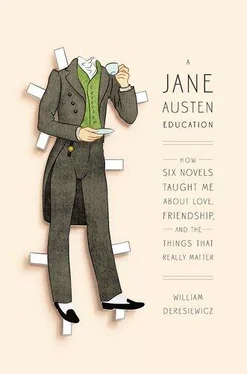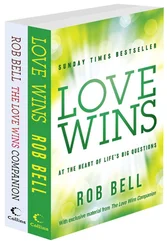A few months later, on a trip to London, she searched the galleries for pictures of Elizabeth and Jane. “I was very well pleased,” she wrote Cassandra, having found a painting that matched her mental image of the latter. “I went in hopes of seeing one of her Sister,” she went on, but there was none to be found. “I can only imagine,” she concluded, that Elizabeth’s new husband “prizes any Picture of her too much to like it should be exposed to the public eye.—I can imagine he would have that sort of feeling—that mixture of Love, Pride & Delicacy.” It’s a lovely conceit, and it tells us two things. Austen was every bit as enraptured by Elizabeth’s marriage as the heroine was herself, and no painting could measure up to Austen’s image of her. The first person to fall in love with Elizabeth Bennet, it seems, was her creator.
All the more telling, then, that Austen didn’t fool herself into thinking that her offspring was perfect. She knew that Elizabeth had a lot of growing up to do—which means that she recognized that she herself did, too. Indeed, as Austen grew older, her letters lost most of their sharpness and snark. Though she began Pride and Prejudice when she was barely out of her teens, it wasn’t published until she was thirty-seven— First Impressions, the original version, was rejected by a publisher sight unseen, and she didn’t return to it for many years—and by that point her letters made a very different sound than that freeswinging tale of the ball.
“Wisdom is better than Wit,” she told her favorite niece around this time, “& in the long run will certainly have the laugh on her side.” The niece, Fanny Knight, now twenty-one herself, was trying to decide whether to marry a certain young man, serious and thoughtful but a little wanting in manner and grace. Aunt Jane wasn’t sure: did Fanny love him enough? But one thing she was certain of. “His uncommonly amiable mind, strict principles, just notions, good habits— all that you know so well how to value, All that really is of the first importance—everything of this nature pleads his cause most strongly.” Good character, she was reminding her niece, is more important than liveliness and spirit.
Saying as much, she was watching over Fanny’s own character, just as she had long done with all her brothers’ many children (of whom she would live to see more than two dozen born). She wasn’t a mother herself, but she had a mother’s care for her nieces and nephews—especially Fanny and her siblings, her brother Edward’s children, whose own mother died giving birth to the last. “They behave extremely well in every respect,” she wrote of his two oldest boys, sent from boarding school to be cared for by their aunt and grandmother in the wake of the tragic event, “showing quite as much feeling as one wishes to see, and on every occasion speaking of their father with the liveliest affection.”
Of her brother Charles’s oldest girl, some years later, she was less complimentary: “That puss Cassy, did not shew more pleasure in seeing me than her Sisters, but I expected no better;—she does not shine in the tender feelings.” “Nature has done enough for her—but Method” (i.e., what her parents have done) “has been wanting.” Yet two years later, much of it spent under the guidance of Jane and Cassandra and their mother, little Cassy gave signs of improvement. “Her sensibility seems to be opening to the perception of great actions,” her aunt wrote, and she has become, for her father, “a comfort.” Soon, Austen was looking out for a new generation, her niece Anna’s children. “Jemima has a very irritable bad Temper,” she told a correspondent. “I hope as Anna is so early sensible of its’ defects, that she will give Jemima’s disposition the early & steady attention it must require.”
The emphasis, as it always was when Austen wrote about children, was on character. Not beauty or creativity or even intelligence, but conduct and temperament and the capacity for empathy and feeling. She watched her nieces and nephews grow; she shaped that growth when she could; she knew that it would be a difficult process. Austen understood that kids are going to make mistakes, and she also understood that making mistakes is not the end of the world.
Finally, by reading Pride and Prejudice, I had come to understand it, too. Being right, Austen taught me, might get you a pat on the head, but being wrong could bring you something more valuable. It could help you find out who you are. Still, that wasn’t the whole story. If I only needed to make mistakes, growing up would have been easy. I made mistakes all the time. In fact, I tended to make the same mistakes over and over again, just like Elizabeth. Making mistakes, I learned, was only the first step. Elizabeth’s youngest sister, Lydia, loud, wild, and brazen, made flagrant mistakes all the time, too—yawning in people’s faces, wasting money on trifles, shamelessly flirting with the young officers—and she was clearly never going to grow up. Elizabeth’s mother’s entire life was one long series of embarrassments, blunders, and miscalculations, including the whole way she raised her daughters and went about finding them husbands, yet she remained the same anxious, foolish, self-centered person that she’d always been.
It wasn’t even enough, Austen showed me, to have your mistakes pointed out to you. Our brains are very good at figuring out what to say when people call us out on something that we’ve done. We scurry around like beavers, shoring up the walls of our self-esteem. Who, me? No, you must be wrong. That’s not what I meant. Was it really such a big deal? It was an accident. It’ll never happen again. That was the first time, I swear. Mistake? What mistake?
Austen’s heroines, I discovered that summer, had their mistakes pointed out to them over and over again, only it never did them any good. They didn’t grow up until something terrible finally happened. When maturity came to them, it came through suffering: through loss, through pain, above all, through humiliation. They did something really awful—not just stupid, but unjust and hurtful—and they did it right out in the open, in front of the very person whose opinion they cared about more than anyone else’s. Emma insulted Miss Bates in the most callous fashion. Elizabeth leveled a whole series of mistaken accusations. And then someone forced them to see, in a way that they could not deny, just how very badly they had acted.
These were not easy scenes to read. They were almost as painful for me as they were for the heroines themselves. I grieved for these young women, because they were, at the moment of their humiliation, so very, very exposed. At first, all that most of them could do was burst into tears. Elizabeth was luckier. She learned the truth by letter, so at least she could be alone with her feelings. But the revelation of her many errors, when she finally did let it in, was no less crushing. She had been wrong about Jane, she had been wrong about her family, she had been wrong about everything. “Blind, partial, prejudiced, absurd”: that wasn’t just an intellectual judgment; it was a feeling that burned to the core. “How humiliating is this discovery!” she exclaimed to herself, “Yet, how just a humiliation!” And it was then, and only then, that she made her climactic discovery: “Till this moment I never knew myself.”
In drama, this is known as the moment of recognition. Oedipus discovers his horrible crime. King Lear understands how terribly he has wronged his youngest daughter. Fortunately, the errors that Elizabeth made were neither so dire nor so final. Pride and Prejudice was a comedy, after all, not a tragedy, as stories about young people, who have time to correct their mistakes, usually are. But at that moment, after she had come to her awful knowledge, a tragedy was exactly what it looked as if the novel might become. Elizabeth not only saw how badly she had acted, she realized what it had cost her. A great happiness had been within her grasp, she now understood, and pride and prejudice had made her fling it away.
Читать дальше












